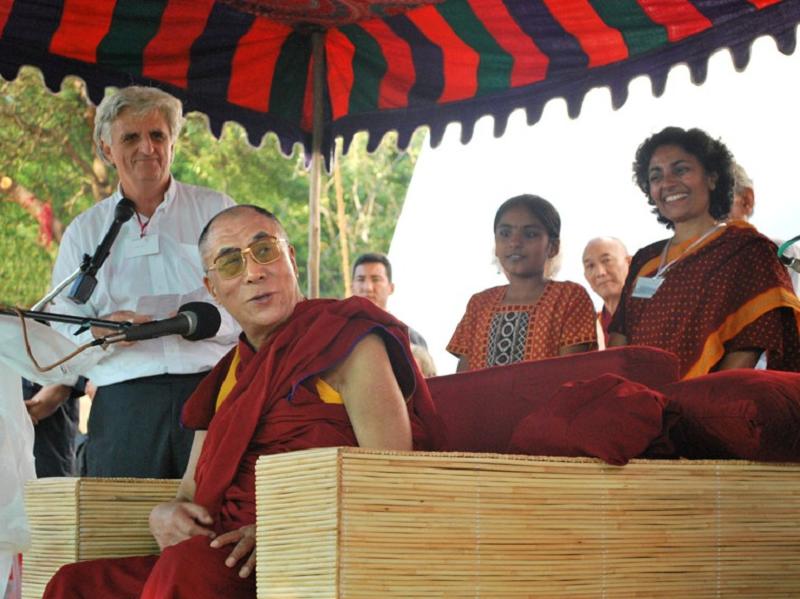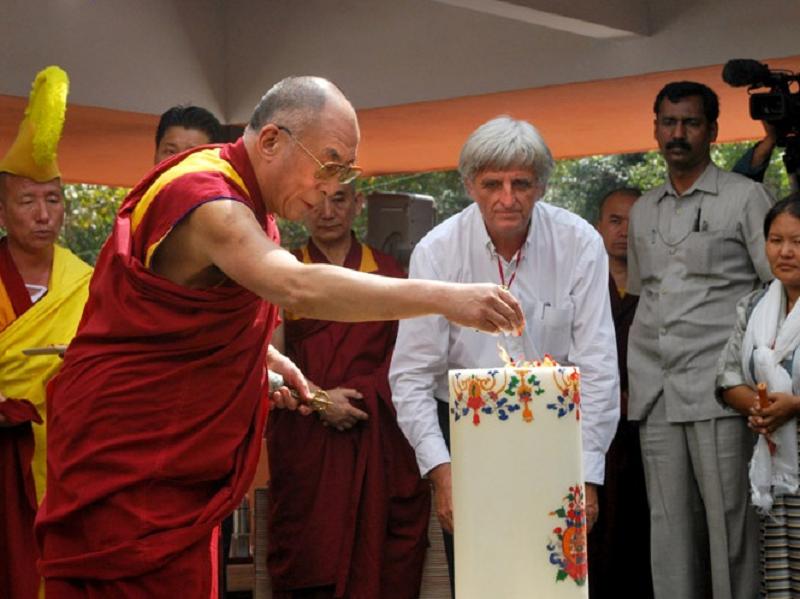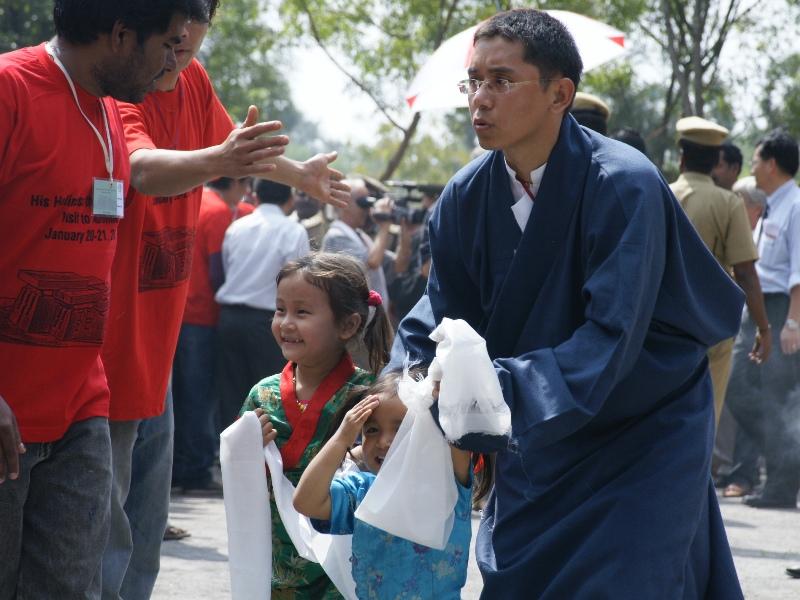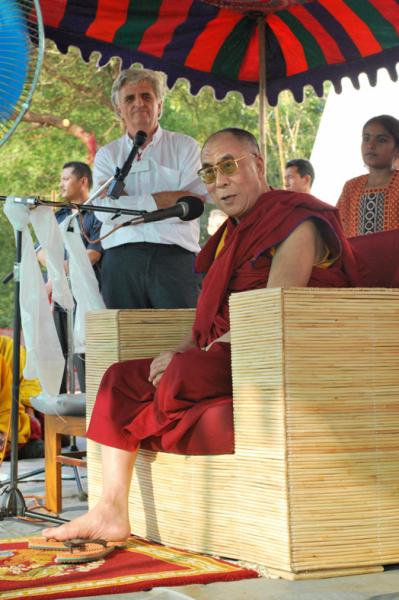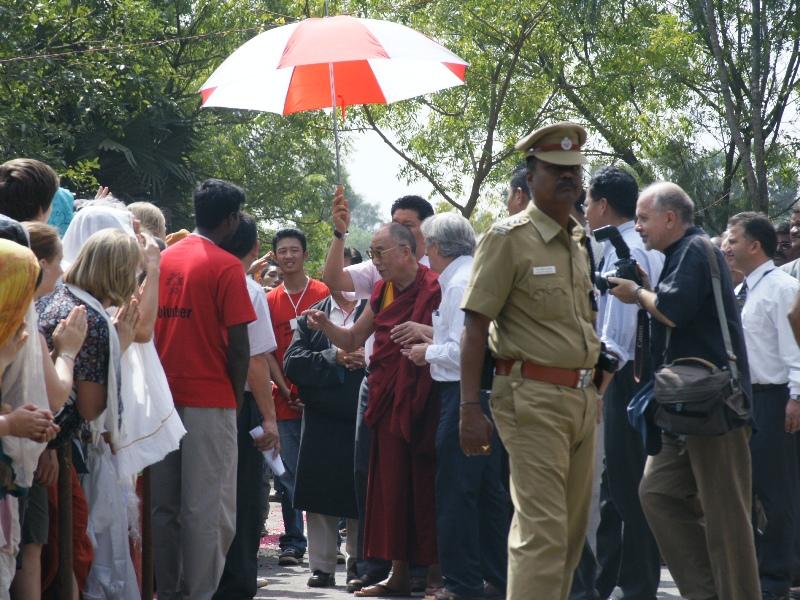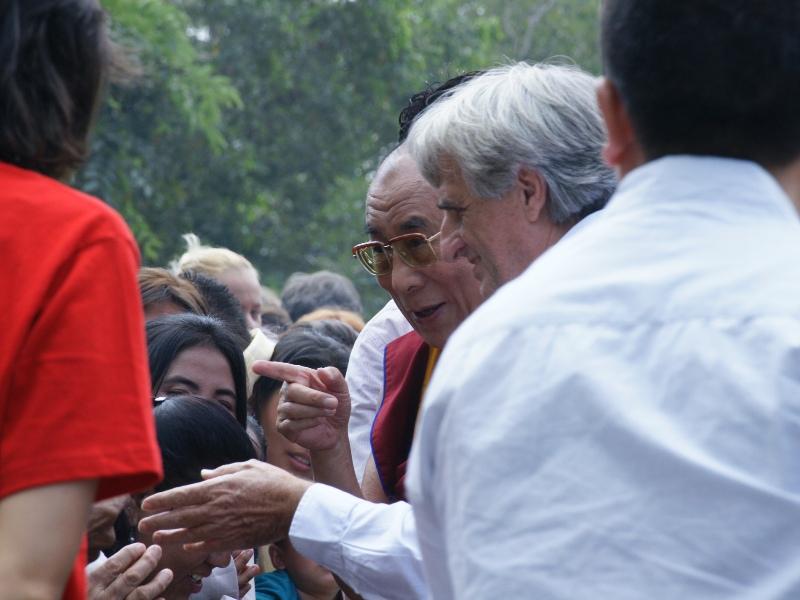The Dalai Lama`s Visit
Last Tuesday His Holiness the Dalai Lama visited Auroville’ for the third time since 1973, this time to inaugurate the newly completed Pavilion of Tibetan Culture. Prior to his public address he made a brief visit to Matrimandir, accompanied by a small entourage of monks and security guards.’ Approximately 3,000 people, including school children, sat quietly to listen to him speak on the of theme ‘Human Unity and Universal Responsibility.” At the completion of his talk the Dalai Lama responded to a number of questions from the audience.
‘
His Holiness the Dalai Lama first visited Pondicherry and Auroville in 1973. On January 17th, he met the Mother in the Sri Aurobindo Ashram. The next day, he visited the barren Auroville site. Twenty years later, on December 23 and 24, 1993, His Holiness paid his second visit to Auroville to lay the foundation stone of the Pavilion. This will be his third visit to Auroville.
A Lecture on ‘Human Unity and Universal Responsibility’
On December 1989, His Holiness the Dalai Lama was awarded the Nobel Peace Prize. This momentous event brought about a new direction in his life. In his Nobel Acceptance Speech, the new laureate made clear that humanity was central to his preoccupations: “No matter what part of the world we come from, we are all basically the same human beings. We all seek happiness and try to avoid suffering. We have the same basic human needs and concerns. All of us human beings want freedom and the right to determine our own destiny as individuals and as peoples. That is human nature.” During the following years his concept of ‘universal responsibility’ developed and became the core of his political thought. He has repeated time and again that this is his first commitment in this life (his two others commitments are, in this order: inter-religious dialogue and the cause of Tibet). During the past years, wherever His Holiness goes, he lectures about ethics being the only way to save the planet from self-destruction. This applies not only to the fields of environment, business, administration or education, but to all fields of life. For him ethics or human values mean that ‘humanity’ should be at the center of our thoughts. This is what he calls ‘universal responsibility’.
‘ ” ”” ”
‘
His Holiness the Dalai Lama first visited Pondicherry and Auroville in 1973. On January 17th, he met the Mother in the Sri Aurobindo Ashram. The next day, he visited the barren Auroville site. Twenty years later, on December 23 and 24, 1993, His Holiness paid his second visit to Auroville to lay the foundation stone of the Pavilion. This will be his third visit to Auroville.
A Lecture on ‘Human Unity and Universal Responsibility’
On December 1989, His Holiness the Dalai Lama was awarded the Nobel Peace Prize. This momentous event brought about a new direction in his life. In his Nobel Acceptance Speech, the new laureate made clear that humanity was central to his preoccupations: “No matter what part of the world we come from, we are all basically the same human beings. We all seek happiness and try to avoid suffering. We have the same basic human needs and concerns. All of us human beings want freedom and the right to determine our own destiny as individuals and as peoples. That is human nature.” During the following years his concept of ‘universal responsibility’ developed and became the core of his political thought. He has repeated time and again that this is his first commitment in this life (his two others commitments are, in this order: inter-religious dialogue and the cause of Tibet). During the past years, wherever His Holiness goes, he lectures about ethics being the only way to save the planet from self-destruction. This applies not only to the fields of environment, business, administration or education, but to all fields of life. For him ethics or human values mean that ‘humanity’ should be at the center of our thoughts. This is what he calls ‘universal responsibility’.
‘ ” ”” ”
‘

